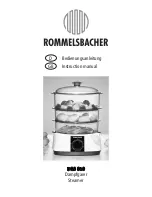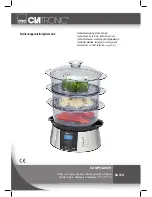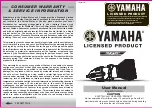
2001 Transportation Gasoline Vehicle Owner’s Manual 1
FUEL AND OIL RECOMMENDATIONS
Fuel
Use only clean, fresh, unleaded regular grade
gasoline.
Octane Rating
The octane rating of a gasoline is a measure
of its resistance to “knocking”. Use of a mini-
mum of 87 octane of the anti-knock index is
recommended.The anti-knock index is posted on
service station pumps in the U.S.A.
Oxygenated Fuel
If you use oxygenated fuel (either ethanol or
MTBE added to gasoline), be sure it is unleaded
and meets the minimum octane rating require-
ment.
The following are the EPA approved percent-
ages of fuel oxygenates.
ETHANOL: (Ethyl or Grain Alcohol) You may
use gasoline containing up to 10% ethanol by
volume.
MTBE: (Methyl Tertiary Butyl Ether) You may
use gasoline containing up to 15% MTBE by
volume.
METHANOL: (Methanol or Wood Alcohol) 5% by
volume.
You may use gasoline containing up to 5%
methanol by volume, as long as it also contains
cosolvents and corrosion inhibitors to protect
the fuel system. Gasoline containing more than
5% methanol by volume may cause starting
and/or performance problems. It may also dam-
age metal, rubber, and plastic parts of your fuel
system.
Engine Oil
The following engine oils are recommended.
API Service Classification: SC, SD, SE, SF,
SG, or SH.
Oil Viscosity
Choose the viscosity according to the tem-
perature as follows:
Fuel Information
THIS VEHICLE IS CERTIFIED TO OPER-
ATE ON UNLEADED REGULAR GRADE
GASOLINE ONLY. A minimum of 87 octane of
the anti-knock index is recommended. The anti-
knock index is posted on service station pumps
in the U.S.A.
Emission Control Information
To protect the environment in which we all
live, Club Car has incorporated crankcase emis-
sion (1) and exhaust emission (2) control sys-
tems (EM) in compliance with applicable regu-
lations of the U.S. Environmental Protection
Agency and California Air Resources Board.
1. Crankcase Emission Control System
A sealed-type crankcase emission control
system is used to eliminate blow-by gases. The
blow-by gases are led to the breather chamber
through the crankcase. Then, it is led to the air
cleaner.
Oil is separated from the gases while passing
through the inside of the breather chamber
from the crankcase, and then returned back to
the bottom of the crankcase.
2. Exhaust Emission Control System
The exhaust emission control system applied
to this engine consists of a carburetor and an
ignition system having optimum ignition timing
characteristics.
The carburetors have been calibrated to
provide lean air/fuel mixture characteristics
and optimum fuel economy with a suitable air
cleaner and exhaust system.
Maintenance and Warranty
Proper maintenance is necessary to ensure
that your engine will continue to have low emis-
sion levels. Those items identified by the Periodic
Maintenance Chart are necessary to ensure
compliance with the applicable standards.
The Club Car Limited Emission Control
System Warranty requires that you return your
engine to an authorized Club Car Dealer for
remedy under warranty. Please read the warranty
carefully, and keep it valid by complying with
the owner’s obligations it contains.
Tampering with Emission Control
System Prohibited
California State law prohibits the following
acts or the causing thereof: (1) the removal or
rendering inoperative by any person other than
for purposes of maintenance, repair, or replace-
ment, of any device or element of design incor-
porated into any new engine for the purposes of
emission control prior to its sale or delivery to the
ultimate purchaser or while it is in use, or (2) the
use of the engine after such device or element of
design has been removed or rendered inopera-
tive by any person.
Among those acts presumed to constitute
tampering are the acts listed below:
Do not tamper with the original emission relat-
ed parts:
• Carburetor and internal parts
• Spark plugs
• Magneto or electronic ignition system
• Fuel filter element
• Air cleaner element
• Crankcase
• Cylinder head
• Breather chamber and internal parts
• Intake pipe and tube
EMISSION CONTROL INFORMATION
-20
°
C -10
°
C
0
°
C
10
°
C
20
°
C
30
°
C
40
°
C
-4
°
F
14
°
F
32
°
F
50
°
F
68
°
F
86
°
F 104
°
F
SAE 5W-20
SAE 10W-30/SAE 10W-40
SAE 30
SAE 40
NOTE
• If “knocking or pinging” occurs, use a
different brand of gasoline or higher
octane rating.
• Do not mix oil with gasoline.
• Gasoline is extremely flammable and
can be explosive under certain con-
ditions. Turn the engine switch OFF.
Do not smoke. Make sure the area is
well ventilated and free from any
source of flame or spar ks; this
includes any appliance with a pilot
light. Never fill the tank so the fuel
level rises into the filler neck. If the
tank is overfilled, heat may cause
the fuel to expand and overflow
through the vent in the fuel tank.
• After refueling, make sure the tank
cap is closed securely.
• If gasoline is spilled on the fuel tank
wipe it off immediately.
WARNING
CAUTION
WARNING
WARNING
•
THE ENGINE EXHAUST FROM THIS PRODUCT CONTAINS CHEMICALS KNOWN TO THE STATE
OF CALIFORNIA TO CAUSE CANCER, BIRTH DEFECTS, OR OTHER REPRODUCTIVE HARM
.
NOTE
• Using multi-grade oils (5W-20, 10W-
30, and 10W-40) will increase oil
consumption. Check oil level more
frequently when using them.
Summary of Contents for 2001 TransPorter
Page 1: ...200 1 Owner s Manual Villager TransPorter Gasoline Vehicles ...
Page 2: ......
Page 8: ...6 2001 Transportation Gasoline Vehicle Owner s Manual ...
Page 42: ......
Page 43: ......




































